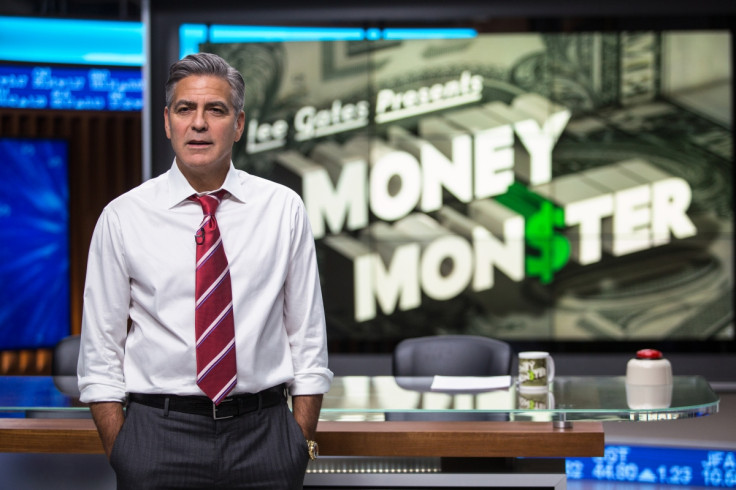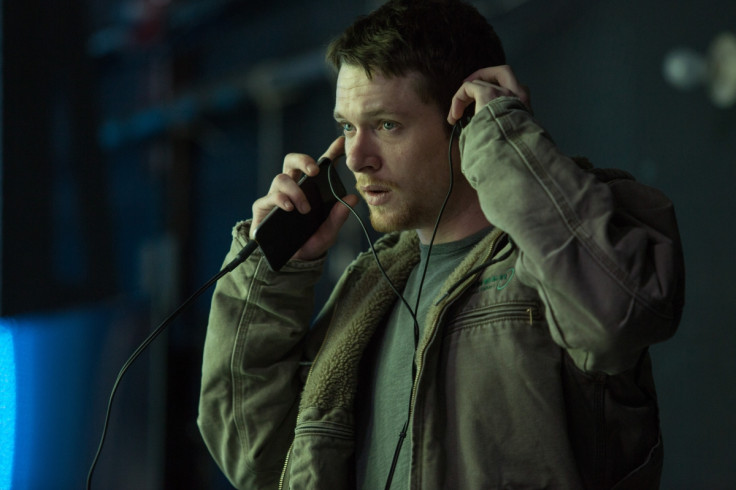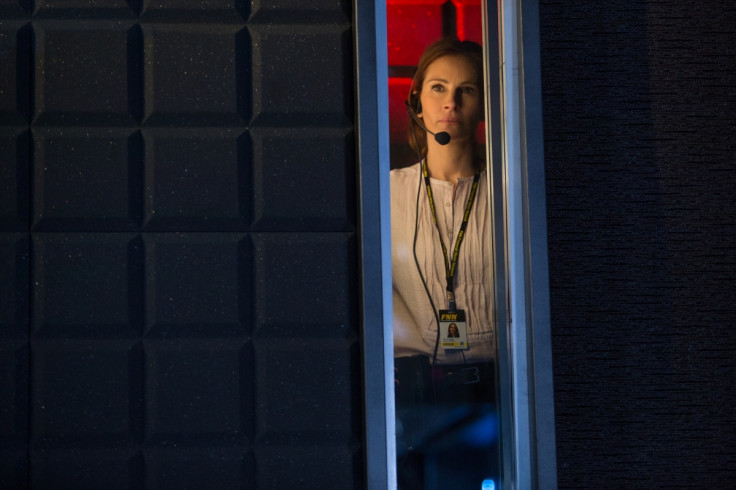Money Monster review: Flashy thriller entertains but lacks the intensity to make it truly great

Financial guru Lee Gates (Clooney) doesn't care about much other than maintaining the fact that he hasn't eaten dinner alone since the 1990s, whether erectile cream really does work and the economy's current fiscal situation. He doesn't even care that much about the prompters and lines written for him when it comes to presenting his television show Money Monster, for that matter, constantly going off-script and doing what he wants on air.
The only thing that keeps him relatively in check during his live segments is his hard-working and longtime director Patty Fenn (Roberts), who constantly pre-empts his spontaneous hosting decisions and acts accordingly behind the scenes, delivering a smoothly-run edition every week. "You just point the camera in my direction and we'll figure it out together," Gates tells Fenn before he's about to go on for one of their episodes. Oh, a foreshadowing one-liner if ever we heard one.
You see, just as Gates and Fenn get into the swing of their last show working together (Fenn has been headhunted by a company down the street but hasn't quite plucked up the courage to tell her colleague yet), a mysterious young man makes his way onto set waving a gun around and brandishing a bomb. The 'terrorist' soon becomes identified as Kyle Budwell, a labourer who bought shares in IBIS Clear Capital on a flippant recommendation made by Gates, right before their stock inexplicably crashed overnight, costing investors $800m – and Budwell, every cent he has. And now, he isn't leaving the studio until he gets answers... one way or the other.
Financial crises seem to have become a Hollywood hot topic over the last few years, what with Martin Scorsese's The Wolf Of Wall Street in 2013 and this year's The Big Short. While the former was a largely exaggerated biopic however, and the latter practically an informational video disguised as a comedy, Money Monster adopts a slightly lighter approach much more focussed on the people wrapped up in the money-making business than the economic figures themselves.

Anyone who watched Jack O'Connell rise to fame in Skins will know he's extremely well-versed in playing a volatile hot-head, teetering between self-loathing and unprovoked spurts of anger. Here, he's allowed to show off those skills as Budwell, a character who provides many heart-stopping moments in the tense film. One of the most evident being when Budwell first seemingly stumbles on to the set and explodes into an emotion-filled rage, threatening to shoot Gates in the head if they take the feed off-air. It's truly edge-of-the-seat stuff.
This is first and foremost an ensemble cast however, and one with seriously high calibre to boot, with Oscar winners Clooney and Roberts rounding off the trio at the forefront. Having worked together three times prior to this picture, the ease between the two is evidenced in their scenes together, despite the pair having very little time on-screen within the same shot. Their characters, Gates and Fenn, are introduced as long-time colleagues, familiar with each other in the work place with banter the basis of their relationship. With the stars' chemistry, it seems easy to assume that over the years this has become the relationship between the two lead actors too and as Fenn tries to calm Gates during the take-over, it's almost impossible not to believe.
It's a good job that their dynamic is so present, mind, as each of their characters are somewhat denied the proper development that would've upped the stakes and the audience's empathy tenfold when it came to the dangerous situation they find themselves in. At just 98 minutes, it's unclear why they weren't elaborated on even a little during the film, when there was so evidently enough time to allow it.
As least they get some back story though, unlike secondary characters IBIS CEO Walt Camby (Dominic West) and his right-hand woman Diane Lester (Caitriona Balfe), who, while interesting, fits awkwardly into the overall plot. Without giving away serious details about the storyline either, this lack of explanation as to who they are makes for a relatively rushed-feeling ending. A shame seeing as the real-time sequence where Budwell and his hostages were holed up in the studio was definitely thrilling.

While the movie might have some flaws in storyline, something that it truly excels on is technicalities and style. With a filmography that includes titles such as Phone Booth, Gothika and Inside Man, it comes as no surprise that cinematographer Matthew Libatique delivers a wonderful looking film, using larger than life and gaudy shots when he needs to then seamlessly switching to more upclose, claustrophobic ones too to fit the mood of the scene. Composer Dominic Lewis also manages to ensure his soundtrack matches Libatique's visuals perfectly as well.
It's hard to conclude through the film's blockbuster-y gloss whether writers Alan DiFiore and Jim Kouf actually intended to present any kind of deeper message to make audiences at least think about the financial situation of the US and Wall Street. You don't particularly learn anything or come away feeling moved, but if setting out to make a piece of pure cinematic entertainment was their aim, then it's fair to say, they succeeded.
An old-school thriller, formulaic and not very original but fun nonetheless, Foster's ambition as a filmmaker is clearest here than it was in quirky indie flick The Beaver, or even before then in drama Little Man Tate and comedy Home For The Holidays. There's no denying that Money Monster is slick and with fairly thin material it delivers an exciting, if not somewhat ridiculously implausible, popcorn picture.
© Copyright IBTimes 2025. All rights reserved.






















